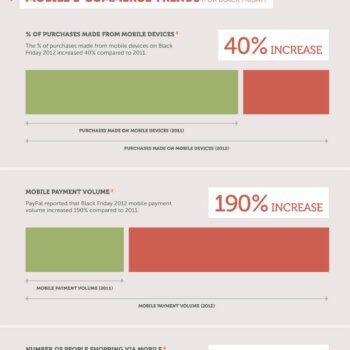In 2000, Patai graduated in Civil Engineering from Chulalongkorn University in Bangkok, Thailand. Patai started a construction career at the downturn of Thai economy after the 1997 Asian financial crisis, as a site engineer of a small construction company. He then later joined a MNC which supplied readymix concrete, as a business development executive, where he started learning about business.
Patai started his first business in 2003 as a decoration material supplier and later turned into a general contractor in 2005. He faced a lot of challenges and risks in running a construction business. A lot of the problems that Patai had faced and the lack of available solutions would later serve as motivation for his later business projects centred on the construction business. In 2005, Patai and his partner started Longkong Studio, which would be the major backer of BUILK.
The Asian Entrepreneur interviews Patai about how it has been like starting up his own enterprise and he shares with us his insights over this unique industry.
What is BUILK?
BUILK is a free cloud-based management tools for construction business that help construction business owner and staff work together online to manage their cost, time and quality. Job costing, procurement, invoicing and site collaboration are the key features to reduce contractors’ risks. Simple ERP-liked platform with unbundled modules makes it flexible and applicable to any size of construction business.
BUILK is designed to solve the common pains of construction business across the world. Connecting well-managed builders in a region through BUILK platform can create a trusted network of construction businesses that all stakeholders in the industry can benefit from property owners to select qualified builders to construction supply companies to market their products and services and get qualified sales leads.
How did you come up with the idea for BUILK?
I have the pains while running a small construction business. So, the idea of BUILK is to help eliminate risks and distrust for construction business. Plus, our experiences in being a consultant and implementer our ERP for large construction company. We see a huge different between large enterprise and SMEs segment in resources, process and decision making.
The SMEs segment is really tough and spent tiny money on IT investment, However, number of construction SMEs in Thailand are huge, more than 60,000 construction businesses registered are SMEs. So, we see this as the opportunity at the bottom of the pyramid.
BUILK’s business model was an experiment of how our enterprise apps can work without implementation and be scalable. And how can we help these SMEs while making money from other stakeholders who are not SMEs.
How did you guys start up?
BUILK started as a business unit of our ERP company in 2009. At that time, we didn’t do any market validation. Just do what we believe and making the product that we as a construction SME want to use bootstrapping by investment from our mother company. Thanks to our previous business and my partners that made BUILK had no financial pressure in the early days. However, we had been 2x-delayed in software development longer than expected. Finally, we launched in April 2010 as free service.
We need to educate the market for user acquisition which is our toughest work for our first year after launched. Software-as-a-Service in construction industry was new at that time. Construction businesses normally works on their spreadsheets or even paper and pen. Our first revenue had come in 2011, 2 years from our start. So it’s come to the process to sales.
Again, online advertising was still infancy and our concept of Free SaaS with ad-support is pretty new. We need to prove our values to our advertisers while growing our user base. We reached 1,500 companies around end of 2011 and started exploring market analysis from our construction data.
Then, we found market research as our new source of revenue besides advertising. Our business model in Thailand has been proven by monthly operating in profit, then we were finding the way to scale outside Thailand. We won the most promising startup from Echelon 2012 in Singapore. That’s was our first step into overseas expansion.
We have partner with local construction business because we believe that construction industry need local professional to educate the market and evagelize construction SMEs to move into digital age like we did in Thailand.
What is your business development strategy?
I have a co-founder who has background in computer engineering and recruit developers.Our first version was just a proof of concept but it took us a year in development. because we don’t know any methodology for running a good startup. Our second version in 2011 was a refactor version with advertising engine as revenue concerned. And Our Builk 3.0, launched in Aug 2013, has been rebuilt again with localization capability for overseas expansion. We’ve just developed our knowledge while developing business. As an ex-general contractor, I came from zero knowlege of tech business.
What kind of challenges did you guys face initially?
In our case, i think walking on the path that nobody paved the way was the most difficult.
Many times, we don’t know what we don’t know. To overcome it, I opened up myself to new things, learnt from startup community and other entrepreneurs.Applying knowledge from other industries with new hypothesis on our startup, implement, measure and do it again. Now unknown is more fun and experimental.
In your opinion, what is an important attribute to grow a business?
Team. Our first hires have set the tone for the company culture that extends well beyond our startup days and into the growth stage.
Tell us about the construction industry.
I grew up in a construction business family. But i think it can be changed.As we see other industry moved forward into digital. Construction industry is still laggard.To create an impact to this mammoth industry, there must be somebody that crazy enough to make the disruption.
How have you been able to maintain a positive company presence in the market?
With the construction data that we crowdsourced, we value the trust our use place in us and contribute useful information back to the industry.Working with our partners to create more benefits, better products and marketing campaign for our users. For those who are not our users yet, they may see our good intention from many public events we held to educate the industry as well.
What is your opinion towards acquiring human capital?
The best way to attract talented people is by having a great work environment and staff: Great people want to work with other great people. Not only founders, our staff should be the selling point for the company.
If you could change one thing about your initial approach, what would it be?
I think it would be hiring someone the has the passion in our products.
How has it been like working on a startup in Asia?
It’s really exciting over this few years, Asian market has our own culture, unique problem-solving style or even unique problems to solve.Not only localized success cases from the western markets. We will see more startups that solve real problem in Asia grow in our own way. Ecosystem is developing and connected Asian as a single market, as we can see many investors invest in overseas startups.
What are you most excited about at the moment?
Anything that can apply to construction industry. Big Data is what we are excited about while seeing our users grow.
What is one habit that makes you an effective entrepreneur?
I love playing with ideas and communicating my ideas by visualizing.
Why did you decide to become an entrepreneur?
As I seen Thailand economy in 1997 crisis, I got inspired by Mr. Sirivat Voravetvuthikun, Mr. Sandwich Man, a Thai entrepreneur who failed from his peak in stockbroker career and restarted his life by a new sandwich business. I met him in my last year in the university then I decided to become an entrepreneur with ‘fail faster, succeed sooner’ in mind.
What do you think are the most important things that entrepreneurs should keep in mind?
Find the thing that you have passion about and want to work everyday on it.
In your opinion, what delivers entrepreneurial success?
Keep challenging the status quo.
Any parting words of wisdom for entrepreneurs out there?
It’s okay to fail. I embrace failure and recognize it’s an essential component of growth. We can learn more by failing at a startup than studying the success cases of other companies.
Connect with Patai Padungtin and BUILK today:
Website:http://builk.com/
Linkedin:http://th.linkedin.com/in/patai/
Facebook:http://www.facebook.com/builk





































